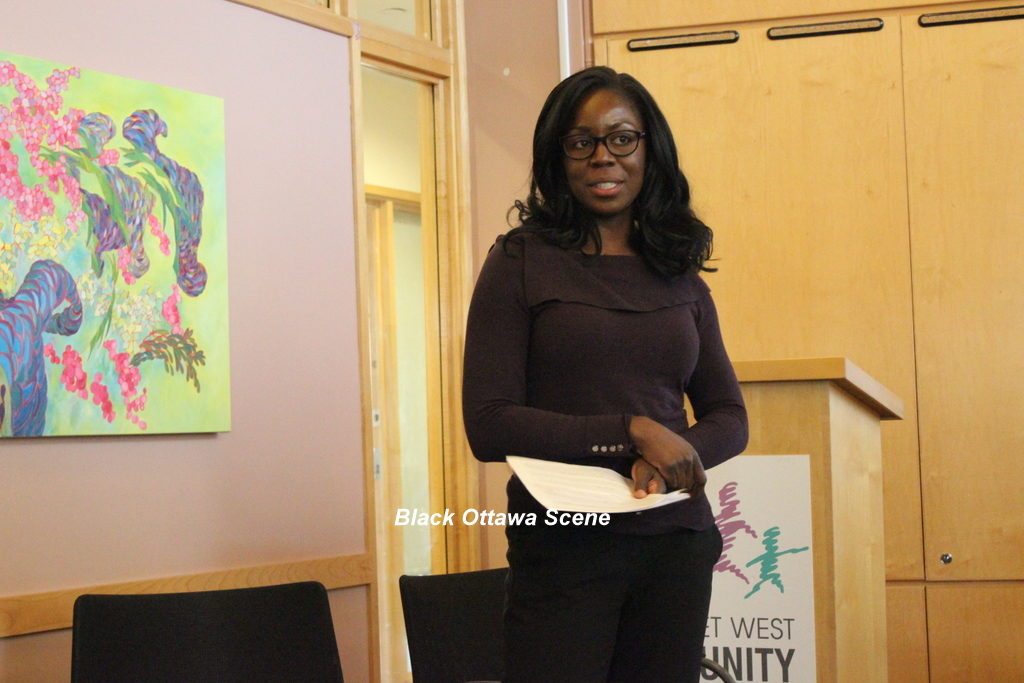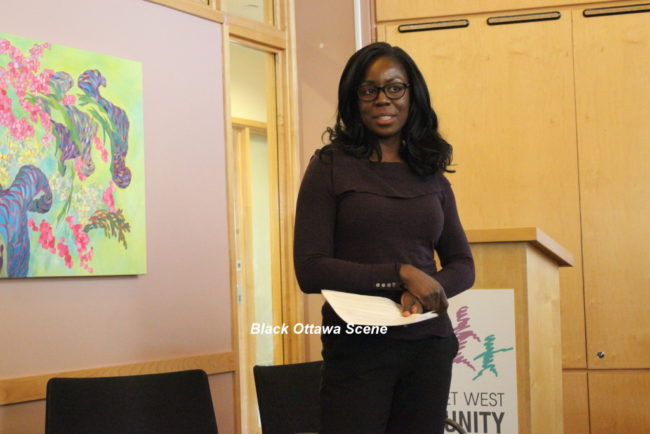
Wednesday 11 September 2019
A dozen Black community leaders and stakeholders joined the staff of Somerset West Community Health Centre on Eccles Street for a conversation on the health status and experience of Ottawa’s diverse Black community. The goal was to assist the centre to develop a realistic funding proposal to the Local Health Integrated Network (LHIN) for systematic programs and services to improve the mental health experience of the city’s Black community.
Recent statistics indicate that the Black population in Ottawa has increased by 73.6% between 2006 and 2016, nearly doubling from 45,000 to 78,000. Ottawa recently celebrated a population of 1,000,000 with Blacks representing the largest group of visible minorities in our city. In addition, Black communities are disproportionately affected by health-related issues such as mental health, HIV/AIDS, heart disease, sickle cell, stroke and hypertension, yet these haven’t been adequately addressed within our health-care system.
Led by Suzanne Obiorah, Somerset West’s Director of Primary Care and Regional Programs, the questions addressed were:
What are Blacks sharing with you about their perception of mental health services in Ottawa? What about mental health issues in general? Where are Blacks seeking formal and informal mental health supports? What if any gaps are we experiencing in services? What key elements should be included in mental health services for Blacks in Ottawa?
The conversation brought out suggestions and insights on: lack of awareness on existing programs and services; lack of education on mental health; stigma; cultural and systemic barriers; need for coordination and collaboration between Black community organisations, service providers and other stakeholders; and the limitations to access within the province’s health care system (OHIP).
A representative of the University of Ottawa Department of Psychology, also presented on a four-year project examining mental health issues of Black youth titled: Mental health of Black communities in the National Capital Region: Evaluation, Prevention and Intervention Tools.
Among the organisations participating in the conversation were: Black History Ottawa; AIDS Committee of Ottawa; University of Ottawa; FAHMAS Foundation; African Canadian Association of Ottawa (ACAO); Canadian Mental Health Association; Ottawa Community Immigrant Services Organisation (OCISO), and a representative of Ottawa’s first Black City Councillor Rawlson King.
All photos copyright Black Ottawa Scene

